 Waiting for a doctor or vet to call with test results is always a bit nerve-wracking. I cheated a bit on yesterday’s post because I had to take my senior dog, Kitsune, to the vet. We’ve been keeping an eye on some elevated liver numbers in his bloodwork. So now I’m waiting for the vet to call with the results of his most recent test. I’m keeping my fingers crossed that we get the news we’re hoping for. Kit seems to be doing really well lately, thankfully! Anyways, onward to today’s post for our April blog challenge. I’ll likely post a full update post on Kit sometime soon.
Waiting for a doctor or vet to call with test results is always a bit nerve-wracking. I cheated a bit on yesterday’s post because I had to take my senior dog, Kitsune, to the vet. We’ve been keeping an eye on some elevated liver numbers in his bloodwork. So now I’m waiting for the vet to call with the results of his most recent test. I’m keeping my fingers crossed that we get the news we’re hoping for. Kit seems to be doing really well lately, thankfully! Anyways, onward to today’s post for our April blog challenge. I’ll likely post a full update post on Kit sometime soon.
This post is part of our 2023 April blogging from A to Z Challenge! Join us this month as we go through the alphabet, A to Z, learning more about some of the ingredients that are commonly (or not so commonly, in some cases) found in our dog’s food!
Post Contents:
What is Riboflavin?
R is for riboflavin! You’ve probably heard of riboflavin before, but do you know what it is? Riboflavin is another word for vitamin B2. Like Niacin (vitamin B3), Riboflavin is a water-soluble vitamin. This means that excess amounts of riboflavin taken in by the body is excreted through the urine rather than stored. Vitamin B2 is naturally found in many foods, including dairy products, meat, eggs, nuts, and green vegetables. It plays a role in many important body functions, such as the formation of skin and the lining of the GI tract, the formation and repair of DNA, as well as the proper function of blood cells and the brain. Riboflavin is also essential for energy production, and the metabolism of fats and steroids.
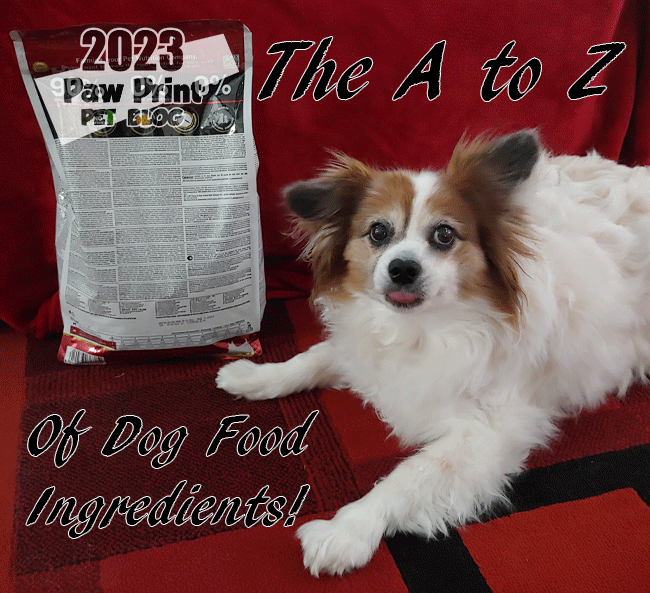
Why is Riboflavin Added to Dog Food?
The recommended dosage of riboflavin for adult dogs is 0.1 to 1 mg per kg of body weight a day. Since this vitamin is found in things like dairy products and meat, it’s not usually hard for dogs to acquire the amounts of riboflavin they need to keep their bodies healthy. However, like when I wrote about vitamin B3, amounts of water-soluble vitamins, including riboflavin, can degrade when dog food is processed. Riboflavin is light sensitive, which means that just being exposed to too much light for too long can degrade it. For these reasons, and because riboflavin is so important for our dog’s health, pet food companies commonly add additional, supplemental riboflavin to dog foods.
Cons of Feeding Riboflavin to Dogs:
Riboflavin, even in high doses, has not been shown to be toxic to dogs. Because it is a water-soluble vitamin, any excess amounts that your dog consumes will be eliminated through their urine.
Benefits of Riboflavin for Dogs:
Dog’s bodies require riboflavin to function properly. Some of the roles it plays include the following…
- Riboflavin is essential for dogs to metabolize fats, proteins, and carbohydrates.
- Riboflavin can fight free radicals, reducing the damage they cause.
- This vitamin is essential for the production of red blood cells.
- It also plays a role in the formation of skin, and is important for skin health and wound healing.
- Riboflavin is also involved in the formation of the lining of the GI tract.
- It is essential for the creation and repair of DNA.
- Riboflavin is important for brain health.
Since it plays so many important roles, riboflavin deficiency, although rare, can be serious. Symptoms can include general weakness, dermatitis, hair loss, anorexia, sores in mucous membranes such as in the mouth, and loss of consciousness. If not treated, deficiency can eventually lead to blindness and even death.
So What’s the Verdict on Riboflavin? Is it Safe as a Dog Food Ingredient?
Yes! Riboflavin is safe for dogs. In fact, they require it to stay healthy. Although it can be found naturally in many foods, many dog food companies supplement their food with additional riboflavin. This can help boost levels, and make up for some of the vitamin being destroyed in the manufacturing process. Riboflavin, even in dosages higher than what’s recommended daily, has not been shown to have a toxic effect on dogs. Excess riboflavin is simply excreted through the urine.
Comment below! Did you know what riboflavin was, and how important it is for dogs? I bet some people interested in human health knew already, because vitamin B2 is just as important for people! It’s interesting how similar we can be, in many ways, to our animal companions.
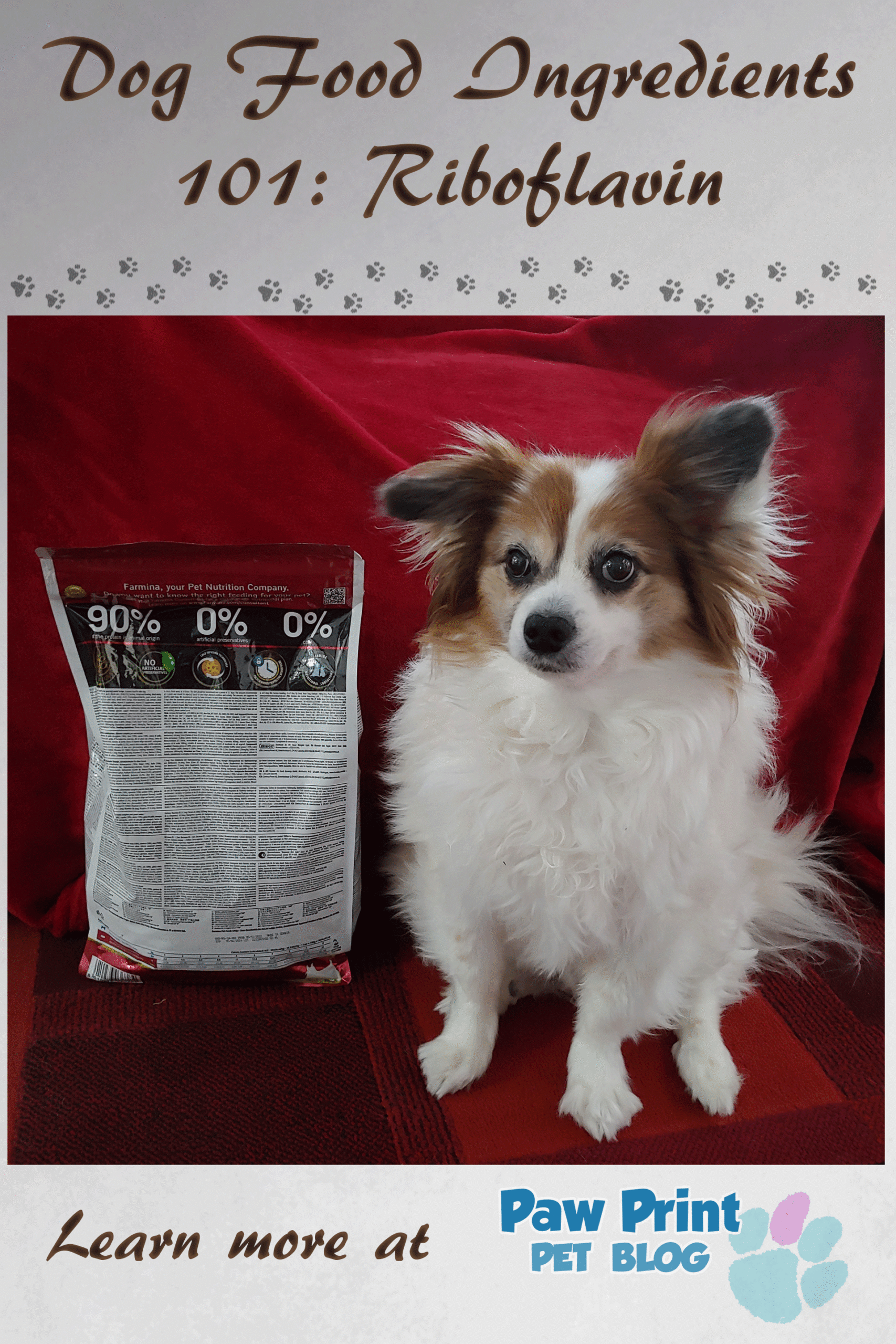
We’ve, unfortunately, been dealing with content scrapers stealing our articles lately. You shouldn’t be seeing this article on any site other than pawprintpetblog.com! If you’re reading this article on any other site, we’d love for you to take the time to contact us and let us know and, if you have the time, stop by and visit us on our official site! Thanks you.

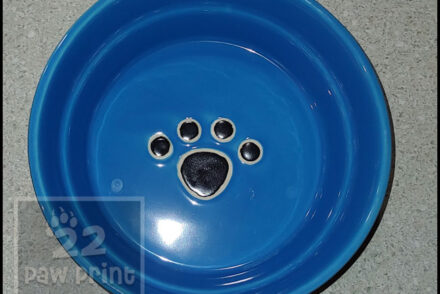
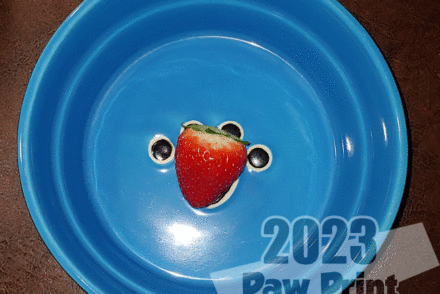
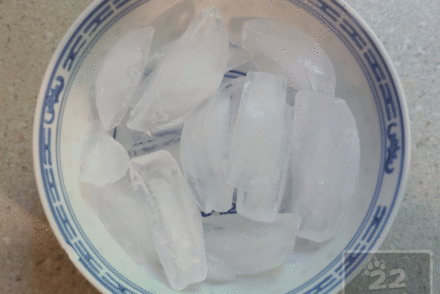

1 Comment
[…] hot summer day. Pineapples contain beneficial nutrients including vitamin C, potassium, magnesium, riboflavin, niacin, vitamin B6, copper, and iron. Many of these nutrients can help support general health, […]